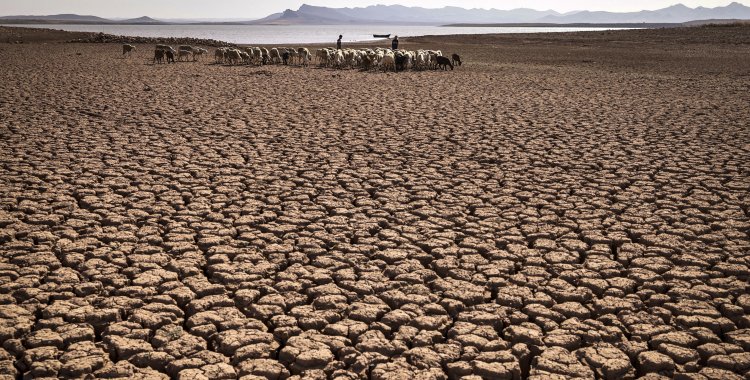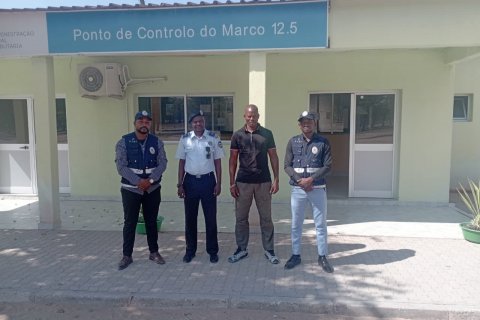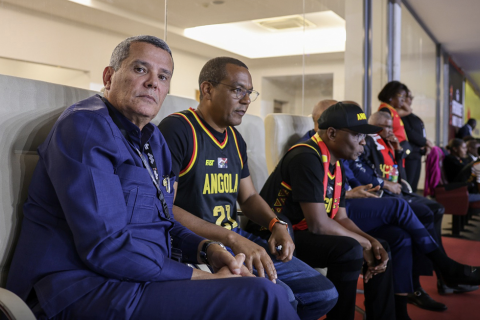This is one of the southern provinces of the country that has most felt the effects of the severe drought that has affected the country since 2012, with increasingly shorter rainy seasons and eroding soils, accompanied by a growing shortage of food for people and animals.
It is estimated that, in this region, 45 percent of the population lives in a nutritional crisis or emergency.
In the municipality of Virei, one of the most affected, the percentage rises to more than 60 percent.
Getting there is not easy.
The sign indicating the crossing to Virei is practically outside the city of Moçâmedes, but the road is deteriorated and the approximately 100 kilometers of gravel and sharp stones discourage car hire, leading those who come to charge astronomical prices to compensate for the maintenance.
Along the way, the tentacular forms characteristic of the 'welwitschia', a species of autochthonous plant and the few forms of vegetation that thrives in this semi-desert and harsh landscape, along with shrubs and thorny acacias, emerge.
Almost 43,000 people live there, including Mucubais, Cuisses, Muhakaona and Muílas, spread over a territorial area of about 15,000 square kilometers, which would fit half of the Alentejo, according to data from the deputy administrator of Virei, Narciso Pires.
Breeders of transhumant cattle, the Mucubais have their identity and main source of wealth in oxen, but the lack of rain forces them to go further and further in search of the green grass that serves as food.
They cover 300 kilometers, taking the herds on foot to the neighboring provinces of Cunene and Huíla, Narciso Pires reports to Lusa, stressing that "real rain" has not fallen in over a decade.
The rivers that flow in the region are intermittent and, by this time, the rainy season, which insists on not falling, only the shapes of water drawn on the sandy bed are visible.
Men and oxen left in April and will only return "when the rain starts to fall again and the grass grows", says Paihama Catenga, responsible for the administration for the Culture and Tourism sectors.
Left behind are women, children and elders, who survive as best they can during the months of absence. They sell goats and chickens on the side of the road and sometimes take some local products to the markets, such as mahungo (insect larvae) or hair oil, which they call mupeque.
When they go to the town hall, the women walk almost 30 kilometers, often barefoot, ignoring the discomfort of the hot, scorpion-strewn soil.
They complain about hunger and the harshness of life, but they resist abandoning traditional habits and when asked if they would like to go to the city, the answer is ready: "there are already a lot of people there. We are better here", tells Lusa Muanpitacana, accompanied by a group of women and some children, who live in an 'onganda' (provisional village) close to the Tchitundo-Hulo caves.
They are decorated with beads, covered with blue cloth, leaving their breasts exposed and displaying their front teeth filed in the shape of a triangle (mpeleleco), characteristic of their culture, an attribute without which they do not feel mucubal.
"And we are more beautiful", smiles, vainly, Muanpitacana.
Considered resistant and "unsubmissive" by the Portuguese colonial administration, the mucubais carried out macabre episodes in the 1930s and 1940s, documented by historian Rafael Coca de Campos, author of Kakombola: O genocide dos Mucubais na Angola Colonial, 1930 – 1943.
In an article published on May 2, 2022, on the website "Esquerda.net", the academic describes what a witness wrote to the governor of Huíla province in 1941, shocked by what he had seen in Moçâmedes: "few dozens of miserable blacks, men, women and children, who looked more like skeletons covered in black parchment (...) crawling like animals, crossed the city, in the midst of a numerous guard with fixed bayonets".
According to Rafael Coca de Campos, they were imprisoned in concentration and forced labor camps, where the majority "perished as a result of the brutality of the labor system".
Today, times are different, but little has changed in the traditions of the Mucubals.
Those who have herds go after pasture. Those who don't, "are really hungry", Muantipacana resigns.
Because being mucubal is raising oxen. The herd must be increased, not to sell or to eat, but to flaunt wealth and social status.
A man without oxen does not marry: "the family does not give him a wife, he cannot support it", says Muantipacana categorically.
The oxen work like the mucubals' bank and just as a person is not asked how much money he has in his account, it is also not supposed to ask a mucubal how many head of cattle he has, they warn us.
"It was never the culture of the Mucubals to sell or kill cattle for food, they prefer to trade goats or chickens", explains Paihama Catenga.
Muetchiavi, a mother of seven, is another of the women from the Virei communities who spoke to Lusa about her trials.
She says that she cannot cultivate because it doesn't rain and Paihama confirms that, at this time, when there is some precipitation, the dryness of the land and the heat immediately absorb all the water, making agricultural production unfeasible.
Therefore, they feed on wild fruits, milk and cornmeal with which they make the traditional funge. Sometimes they don't eat anything and their thinness attests to a poor and little varied diet.
If the drought continues, the cattle will disappear, laments the woman who remembers that before, "when the rain fell", the husbands stayed.
Bauaiala says that he had "many oxen", but the drought was killing the animals and only the goats were left.
The son, who still had a few head of cattle, went to look for pasture on the border with Cunene.
"We depend on livestock and it is dying, the government has to help us", she appeals.
Muanpitacana reinforces the supplications. She asks for food aid, a medical post, water holes. "One cannot drink, the other is broken," she says, adding that they are using a "risky" well where they go deeper and deeper to fetch water.
"We need support," she pleads. "We trust the government to support us, they cannot abandon us, we will starve to death", she laments.
Further on, on the way to the municipality, a young Mucubal boy goes alone on the road, grazing his herd of goats, with the inseparable machete that serves to open the way, as a self-defense and to discipline the most rebellious cattle.
One day he too, who has never heard of climate change, will leave the desert with his oxen, looking for green grass, which is increasingly distant.







